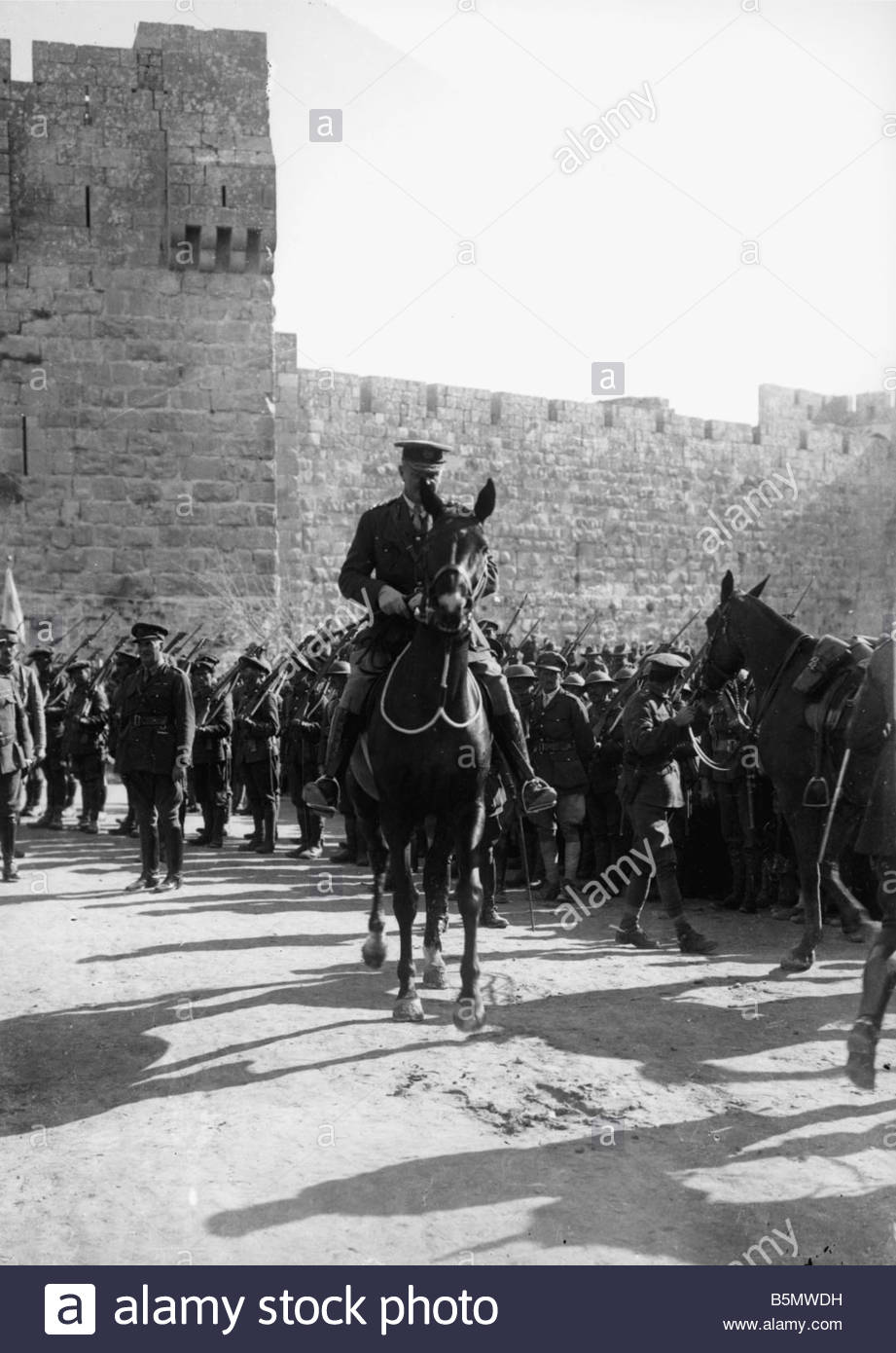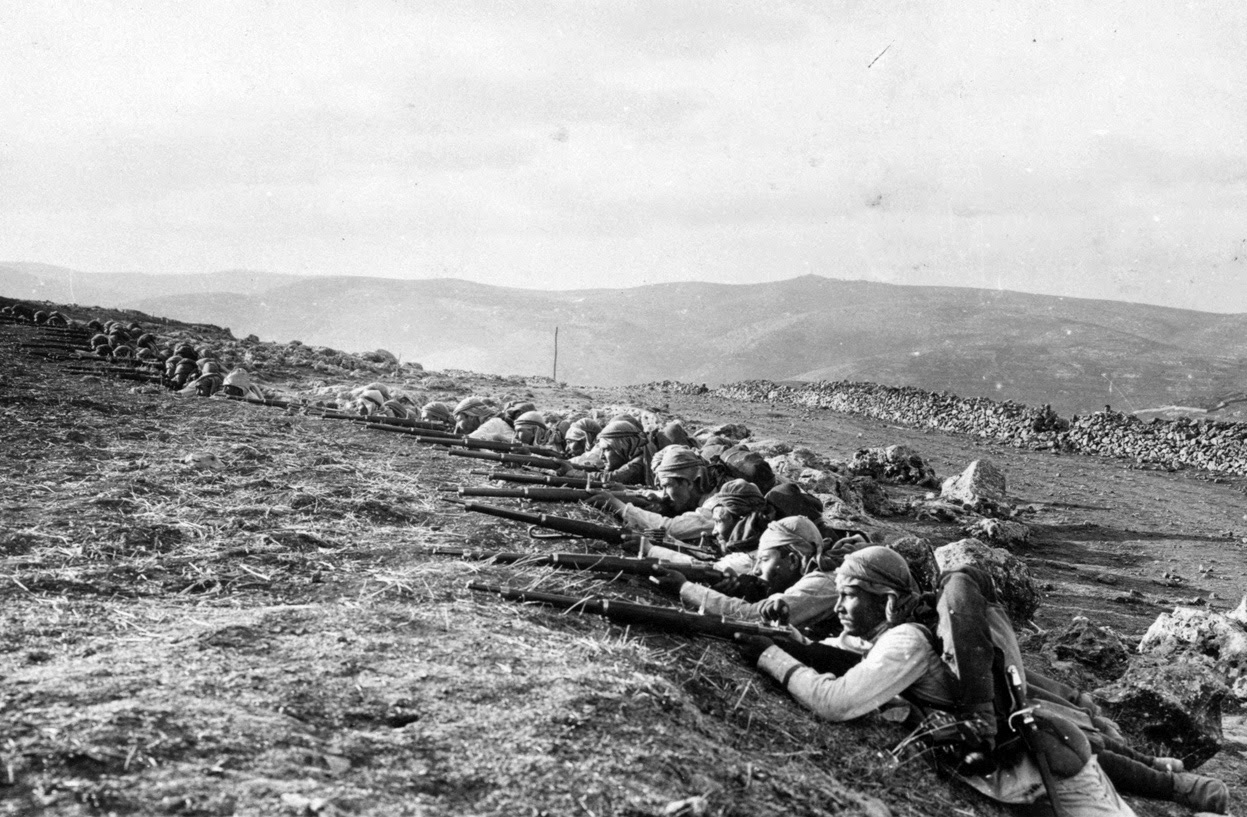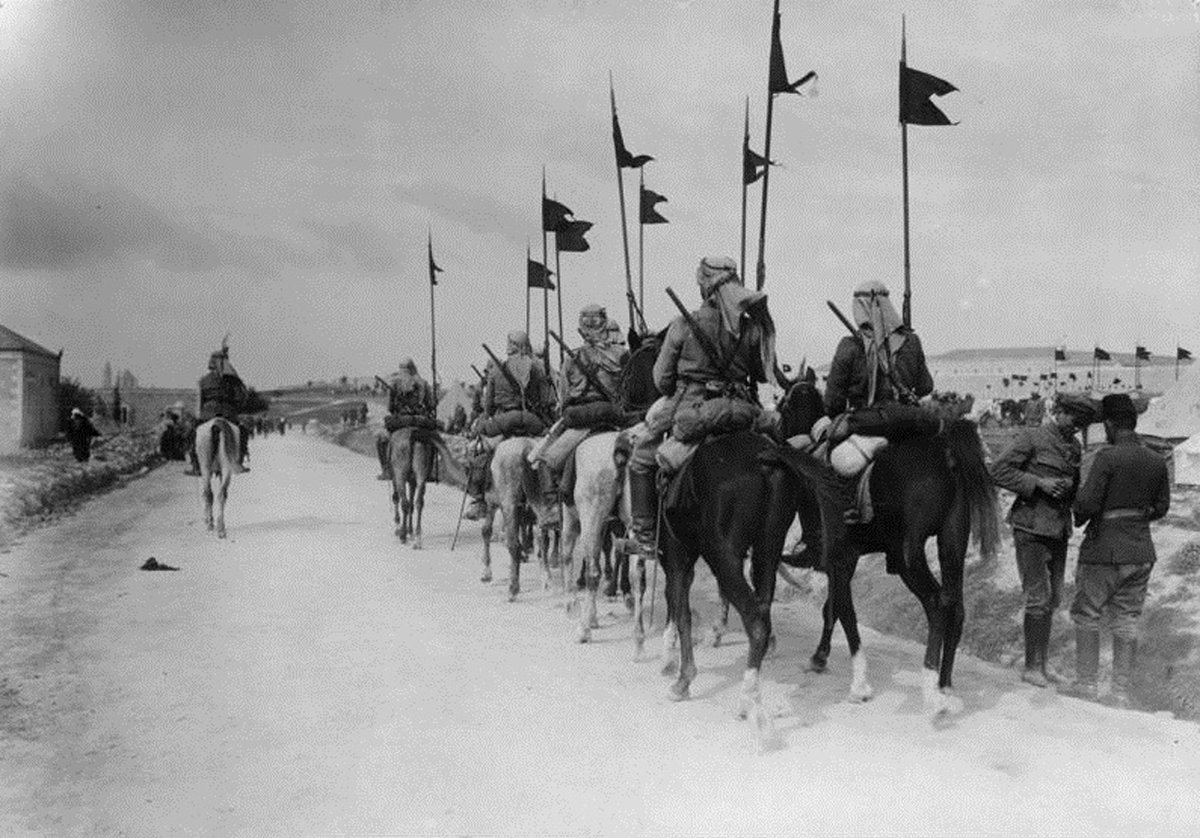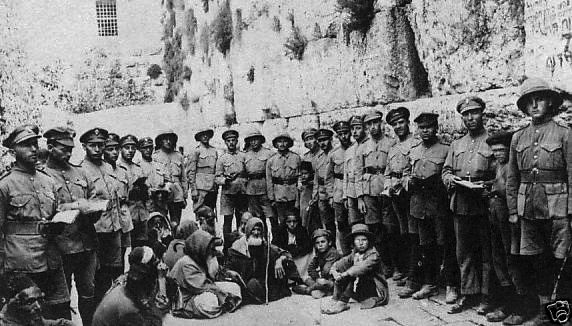Four Centuries of Ottoman Rule at an End.
Turkish Retreat a Christmas Present for the British Nation
Special to The Great War Project
(5 December) Intense fighting continued in the Middle East in the early days of December a century ago, and on December 9th, Jerusalem under the Ottoman Turkish forces surrendered to the British.
“The Ottoman Turkish forces made every effort to defend the city,” reports historian Eugene Rogan, “but the British advance under General Edmund Allenby was relentless.”

British under Allenby capture Jerusalem.
“Though his forces had been depleted by weeks of intense fighting,” writes Rogan, “Allenby never let the Ottomans time to prepare their defenses. He rightly reasoned his chances of success were higher and the risk of casualties lower if he pressed the Ottomans while they were on the run and demoralized by defeat.”
Both sides were averse to fighting in Jerusalem.
“Neither the British nor the Ottomans and Germans wanted to incur the international condemnation that would inevitably result from fighting in the Holy City or damaging shrines sacred to Judaism, Islam, and Christianity.”

Forces under the British control approaches to the city.
At this moment in the war, the British are controlling the approaches to the city from the south, west, and north. The Ottoman/German forces decided to withdraw from the city to the east.
Reports historian Rogan, “The retreat from Jerusalem began after sundown on 8th December and was completed over night.”
“By sundown,” he writes, “on 9 December, 401 years of Ottoman rule in Jerusalem had come to an end.”
As Rogan describes it, “The last act of the departing governor of Jerusalem was to draft a letter of surrender entrusting the Holy City to the government of Great Britain. The governor left the letter with the mayor of Jerusalem.”
The British film the surrender: “A carefully staged event,” Rogan writes, “to ensure the widest possible audience for the greatest victory of the war to date,” Rogan observes.
“This was after all to be Prime Minister David Lloyd George’s Christmas present for the British nation.”
General Allenby on orders from London was to dismount from his horse before making his entry into the Holy City, a gesture of humility that would appeal to Christians in particular.

Ottoman forces withdrawing from Jerusalem.
Writes Rogan: “The event was scripted not just for the benefit of onlookers in Jerusalem but for the prime minister’s announcement in the House of Commons.”
“Lloyd George did not wish to squander the public relations coup and insisted on getting every detail of the historic moment right.”
As he entered the city, General Allenby passed by an honor guard representing all the nations that fought in Palestine. Among those witnessing the event was T.E. Lawrence, soon to become known as the legendary Lawrence of Arabia.
Allenby then read a short speech, assuring the local civilian population that they are now free to go about their business. And he emphasized that…
“the Holy Places of the three religions would be maintained and protected according to the existing customs and beliefs of those to whose faith they are sacred.”
It was a major turning point of the Great War in the Middle East, Rogan observes.
By the end of 1917, the Ottomans had surrendered three great cities to the British – Mecca, Baghdad, and Jerusalem.

The British Army, Jewish Legion, in Jerusalem.
The Ottomans had not only been defeated there, “but their Great War ambitions had been narrowed from victory to survival.”
